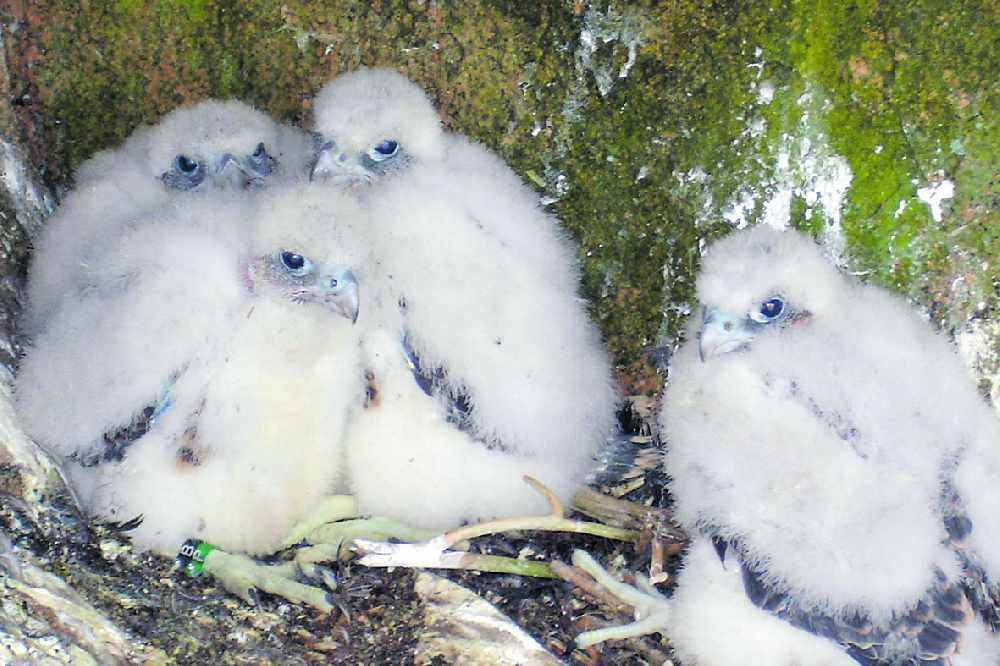
Bird lovers in Longdendale are celebrating after what's thought to be the first successful peregrine falcon nest in the valley for more than a decade.
United Utilities were alerted to the nest of eggs by its shooting tenants a few months ago and have now confirmed that two healthy chicks have successfully fledged.
The species, once in serious decline in the UK, is now becoming more widespread, and the north west of England is considered one of its strongholds.
The location of the nesting site has not been revealed to avoid disturbance.
Peregrine eggs are sought after by illegal collectors and the species is listed on Schedule 1 of the Wildlife and Countryside Act, so it is protected.
One theory as to why the peregrine parents chose Longdendale is that during lockdown there were fewer people around than normal when they were scouting the area for potential nest sites.
“We believe due to limited disturbance from lockdown, the bird may have chosen this site. But whatever the reason, it is great news,” said United Utilities land agent Ross Evans.
“To the best of my knowledge, there haven’t been peregrine nests in the Longdendale Valley for the last ten years. Over the last few years we have been working with Moors for the Future, Natural England and the local tenant farmer and shooting estates to improve the moorland environment for birds of prey.”
Paul Stancliffe, of the British Trust for Ornithology, said: “Although the peregrine has seen a turn-around in its fortunes since the 1960s there is still a long way to go. So, it is great news to hear about any new sites where this magnificent bird takes up residence and breeds successfully.”
Added Ross: “With help from our tenants, the game keeper of the moor and a registered licensed raptor monitor, the two chicks have been ringed and successfully left the nest. A coloured leg ring will help us monitor their progress in future.
“According to experts, peregrines do not migrate, and the majority stay within 100km of their birthplace, so hopefully, when the young pair become adults, they will find plenty of food and opportunities and, in time, rear chicks of their own.”


 "I don't know what I'm going to face each day": Staff member speaks out after increase in knife crime at Ashton bus station
"I don't know what I'm going to face each day": Staff member speaks out after increase in knife crime at Ashton bus station
 Town hall bosses sign off on redevelopment of western Stalybridge
Town hall bosses sign off on redevelopment of western Stalybridge
 Adventure-loving Naimah wins top Rotary Club award
Adventure-loving Naimah wins top Rotary Club award
 Ken’s prize winning daffodils showcased on national TV
Ken’s prize winning daffodils showcased on national TV

